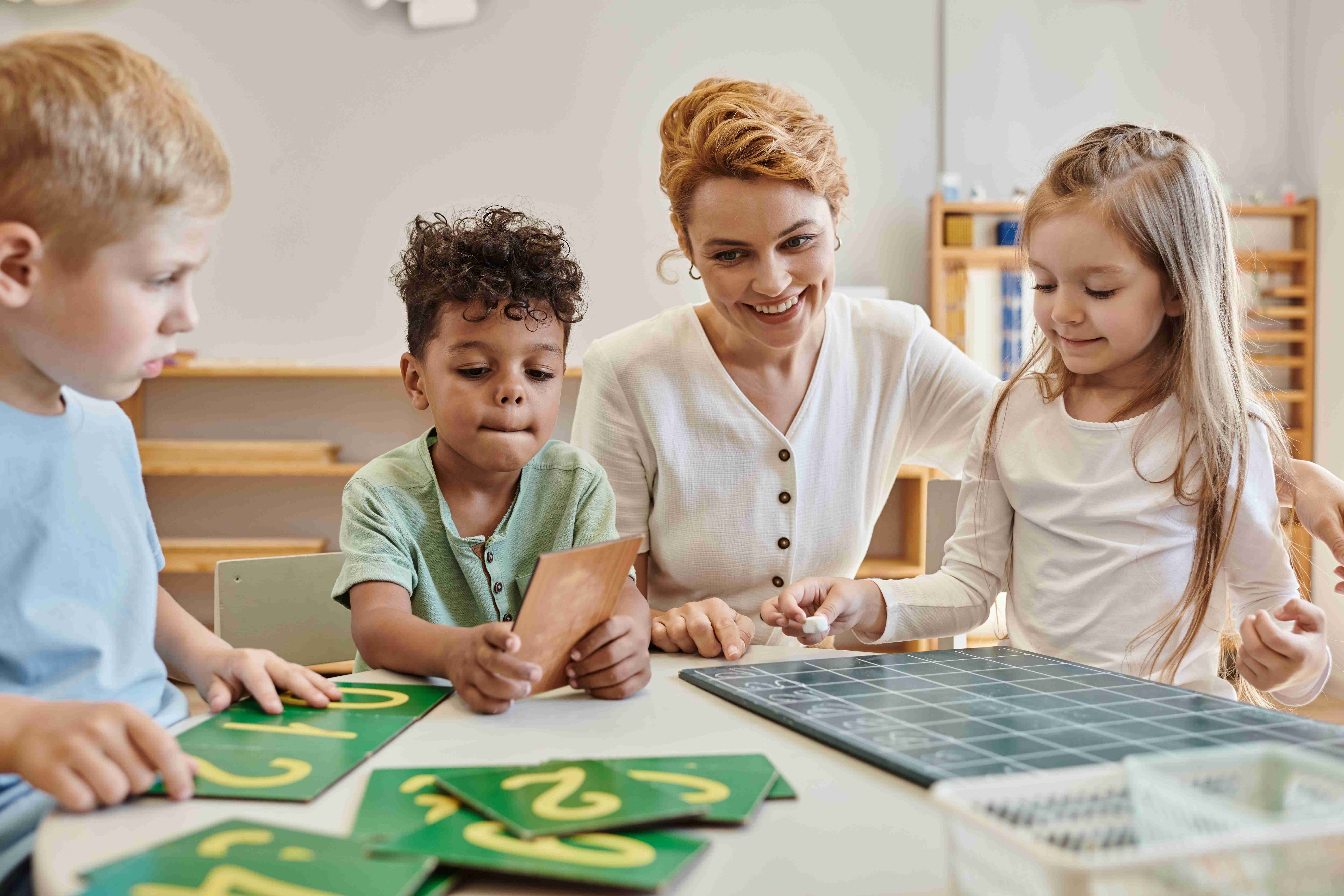When choosing the best education for your child, it’s hard to know what the best fit is. There are so many unique styles of learning that all boast their accolades and superiority. At Childventures, your child’s learning and development is of the utmost importance. For this reason, we’ve integrated components of three of the most celebrated teaching models to provide your child with an optimal learning experience. These three complementary teaching methods are Montessori, High Scope and Core Knowledge. Read on to learn more in-depth aspects of each teaching method!

The Montessori Method
First let’s take a look at arguably the most renowned of the three: The Montessori Method. The method was developed by Italian physician and educator, Maria Montessori. Based on her experience and extensive research, her method focuses on independence, respecting a child’s freedom, along with a respect of a child’s natural psychological, physical, and social development. The method was developed not only for the purpose of education but as a model of human development. The method encourages children to make choices, and follow through on their own learning, with an emphasis on independence and self-confidence building.
The Canadian Council of Montessori Administrators cites that the model has two foundational principles. The first being that children engage in psychological self-construction by interacting with their surrounding environments. The second principle is that children, especially under the age of 6, have an innate path of psychological development. Our Toddler Program is when your child will start with the Montessori experience, and begin to build strong peer relationships. This will development a foundation for our Preschool Program wherein we implement an educational curriculum.
Through Montessori, children experience:
- Practical life Sensorial activities
- Math
- Geography
- Language Expression activities
High Scope Model
Americans Jean Piaget and John Dewey developed the High Scope model in the 1960’s, and it has since evolved to become even more comprehensive, based on cognitive-development and brain research. The model is based on the work of developmental psychologist and educator, Lev Vygotsky. The foundation of Vygotsky’s research focuses on the strategy of adult scaffolding. Adult scaffolding refers to supporting children at their developmental level and helping them to build upon it.
Not unlike the Montessori model, the HighS cope model also insists upon a social setting, where children are able to select items, toys, materials and people to interact with at their choosing and initiation. Also, adults working with the children are merely facilitators and overseers, allowing children a large degree of supervised independence. At Chlildventures, as early as infancy, we start implementing the High Scope curriculum, wherein children have independent schedules.
Through High Scope, children learn:
- Sense of self
- Social relations
- Creative representations
- Language and literacy
- Movement
- Music
- Seriation
- Numbers
- Space
- Time
Core Knowledge Model
The Core Knowledge model was started by E. D. Hirsch Jr., a professor emeritus of education and humanities at the University of Virginia. The basic premise of the Core Knowledge model is that children shouldn’t have to choose between thinking skills and attained knowledge. The three areas Core Knowledge focuses on for a curriculum is one that is coherent, cumulative, and content-specific. Identifying explicitly what each child should learn at each level ensures coherence. Due to the fact that each grade requires certain specific things learned, there is little to no unnecessary repetition. Lastly, the curriculum is content specific, in that teachers are free to creatively develop and plan how to teach the content to the children in their classroom.
Through Core Knowledge, children learn:
- Movement and coordination
- Autonomy and social skills
- Orientation in space
- Scientific reasoning
- Music
- Art
Curriculum At A Glance by Age
- Infancy
- Small group sizes enable infants to develop necessary life skills at their own pace, while gaining exposure to learning in a group setting. At this age we focus on infants developing crucial social and communicative skills.
- Toddler
- We aim to kickstart your child’s developmental journey as a toddler by brain stimulating and hands on learning. As they start their Montessori experience, small groups build social development and special rooms to expose children to art, drama, music, gym, and computers.
- Preschool
- The many facets of hands on learning and brain development are kicked up a notch, preparing your child for school. We ensure the curriculum builds a solid foundation for the early school years at this age.
- Before and After School
- Even once your child has entered school, we offer before and after school programs to engage young learners.
When you’re ready to engage your child in the best blended curriculum available, we’re waiting. To learn more about Childventures and find the most convenient location for you, click here.


